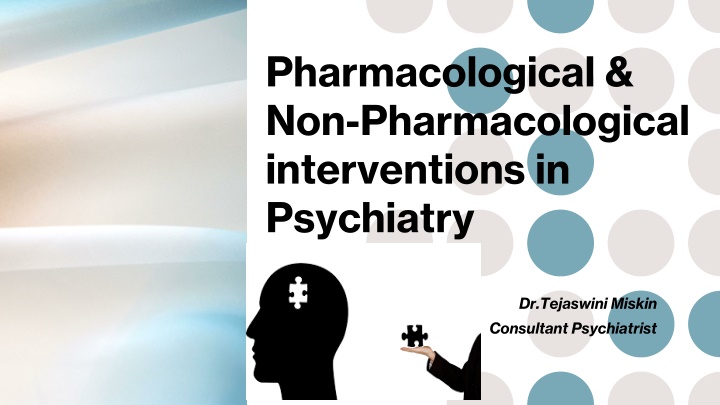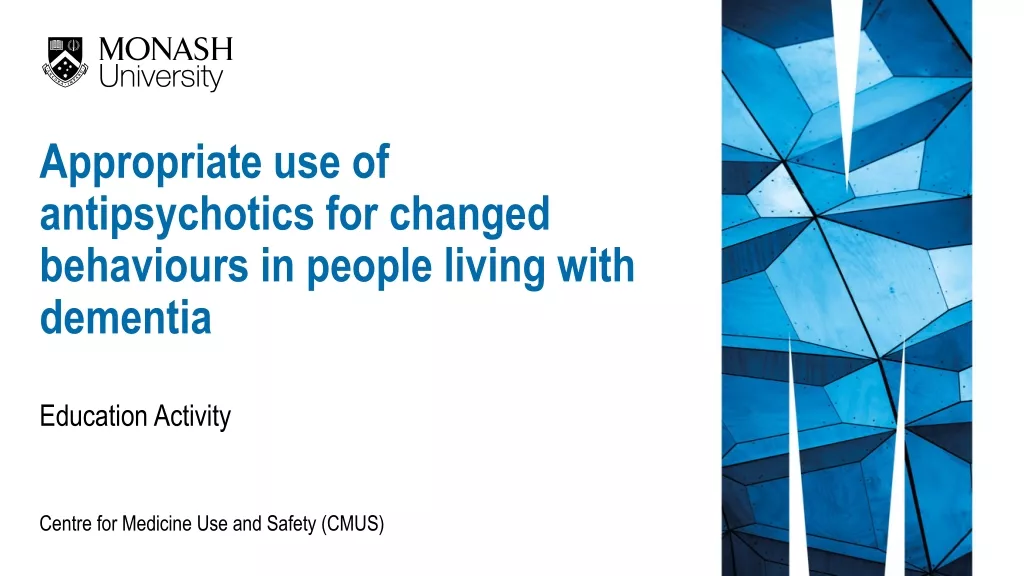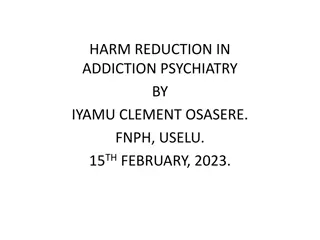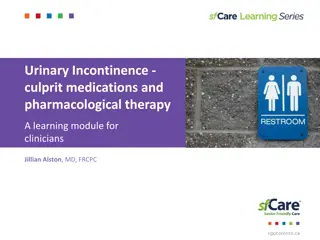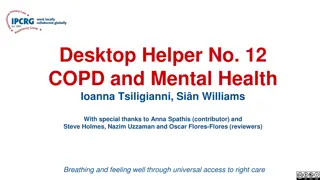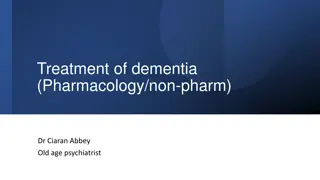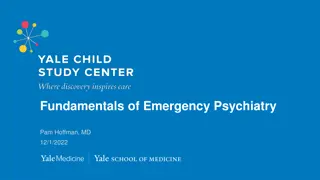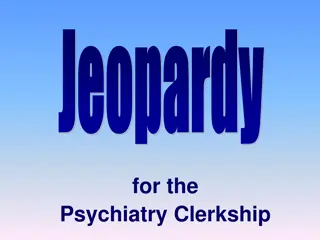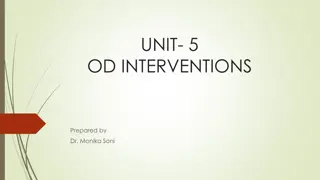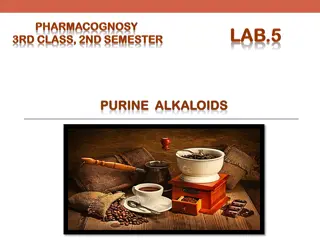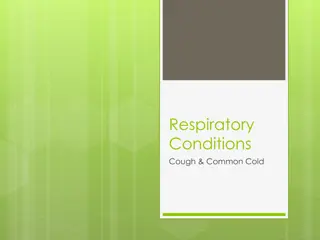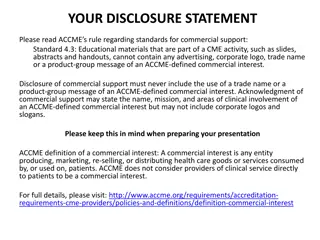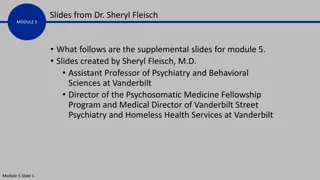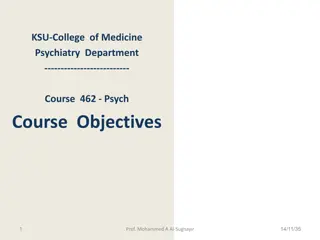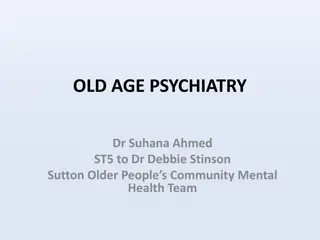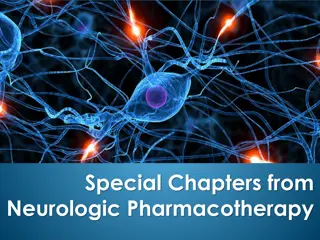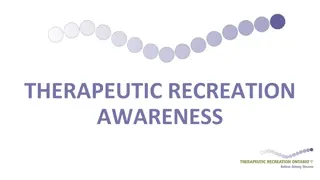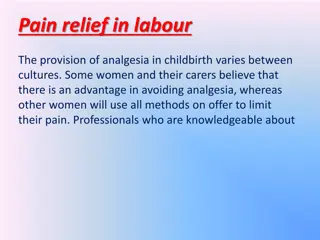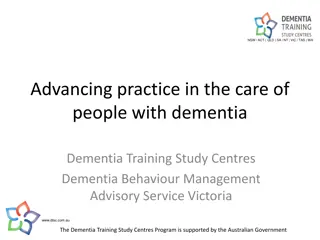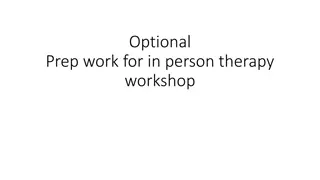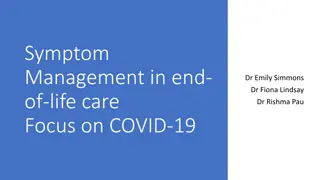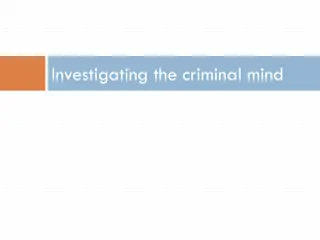Pharmacological & Non-Pharmacological Interventions in Psychiatry - Dr. Tejaswini Miskin
Explore the varied interventions in psychiatry presented by Consultant Psychiatrist Dr. Tejaswini Miskin. Learn about both pharmacological and non-pharmacological approaches for mental health care, with insights on effective treatment strategies and holistic patient care.
Download Presentation

Please find below an Image/Link to download the presentation.
The content on the website is provided AS IS for your information and personal use only. It may not be sold, licensed, or shared on other websites without obtaining consent from the author.If you encounter any issues during the download, it is possible that the publisher has removed the file from their server.
You are allowed to download the files provided on this website for personal or commercial use, subject to the condition that they are used lawfully. All files are the property of their respective owners.
The content on the website is provided AS IS for your information and personal use only. It may not be sold, licensed, or shared on other websites without obtaining consent from the author.
E N D
Presentation Transcript
Pharmacological & Non-Pharmacological interventions in Psychiatry Dr.Tejaswini Miskin Consultant Psychiatrist
Common Myths about Mental disorders:- Mental illness is caused by evil spirit or supernatural power. Mental illnesses are untreatable. Marriage can cure mental illness. People with mental illness can never be productive or do normal work like normal people. Once a psychiatric patient, always a psychiatric patient.
Children dont suffer from psychiatric illnesses and it is a result of bad parenting style. Mentally ill patients are violent and dangerous. Attempting suicide is a sign of cowardice. One can cure mental illness by yoga, meditation, exercise and becoming strong. Psychiatric medicines are addictive or habit forming. Homosexuality is a new age fad and psychiatrist can cure it.
Classes of Medications:- First Generation(eg- Haloperidol) Second Generation(Eg- Olanzapine) Antipsychotics TCA- eg Amitriptyllines SSRIs- eg Sertraline,escitalopram SNRIs-eg Venlafaxines Antidepressants Benzodiazepines- Short term SSRIs Long-term Anti-anxiety
Mood Stabilizers Lithium Sodium Valproate Treatment in drug addiction BZDs Anti-craving- Acamprosate Antabuse- Disulfiram Anticholinesterase inhibitors-Donepezil NMDA Anta-Memantine Antidementia Treatment in children Stimulants- Methylphenidate Non-Stimulants- Atomoxetine
Medication is a vital component in the treatment of patients with severe mental disorder. They can reduce symptoms and prevent relapses of psychiatric disorders but it can be a challenge for clinician to motivate patient to stay on medication.
Common Side-Effects of medications:- Stomach upset Nausea Insomnia/over sedation Tremors Drooling of saliva Muscle stiffness Involuntary movements Slurred speech Gait imbalance
Non-Pharmacological interventions Psychosocial Interventions
Psychoeducation:- Psycho-Education is the process of teaching clients with mental illness and their family members about the nature of the illness, including its etiology, progression, consequences, prognosis, treatment and alternatives (Barker, 2003). Relapse Reduction/Prevention Increase medication Adherence Increase satisfaction with Mental Health service delivery System Improve Quality of life Overall well being of client & Caregivers
Psychotherapies- Cognitive Behavioral Therapy Rational emotive Behavior Therapy Psychoanalysis Dialectic Behavioral Therapy Family therapy Supportive psychotherapy Motivation Enhancement therapy Mindfulness based psychotherapy Acceptance commitment therapy Applied Behavioral analysis
Psychosocial Rehabilitation- A series of psychosocial and social intervention strategies that complement the pharmacological interventions and management of the symptoms, and whose aim is to improve personal and social functioning, quality of life, and support to the community integration of people affected by severe and chronic mental illnesses .
Multi-disciplinary team approach- 1. Care Programmed Approach is a systematic methodology to assess the social and health needs. A Care plan needs to be prepared for each client that identifies the social and health care required for a series of providers that involve regular contact with the case Manager. 2.Intensive Case Management is characterized by a burden of less than 20 patients per case manager (normally one psychiatrist/ Psychiatric Social worker). The ICM (Intensive case management) model is adopted to cover the needs of high frequency patients. 3.Assertive Community Treatment is a form of intervention provided by a team of multidisciplinary mental health team members within the community in an active manner. 4.Day centers and/or psychosocial rehabilitation centers/Half way homes 5.Community Mental Health Centers
Psychosocial Interventions To improve the individual functionality. To help with relationships and communication. Social Skills Training Vocational SkillsTraining Cognitive Retraining Attitudinal change Job placement Follow-up services Encourages to participate in social role. Address family burden. Emotional support to caregivers.
Promote early identification of relapse Develop self-help groups for mutual support and networking among families Provide information about services, welfare benefits. Legal services
Brain Stimulation Techniques- ECT rTMS DBS Neurosurgeries
Conclusion:- Offer your hand, not your judgement. There is no greater joy nor greater reward than to make a fundamental difference in someone s life.
